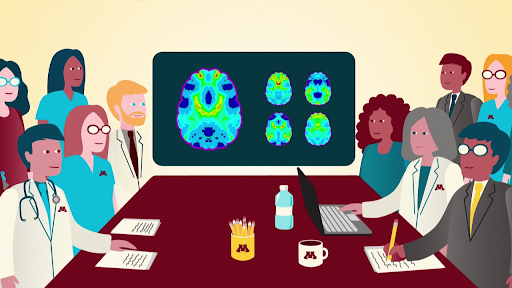Learning While Reflecting by Shuyi Chen
My experience in the National Health Corps member as a Patient Navigator has taught me that healthcare is a multidisciplinary subject. It encompasses social welfare, nutrition, access to transportation, health education, social justice, and so much more. I believe that attempting to grip the multidisciplinary nature of healthcare will be beneficial in my future journey as a physician, as improving the health outcome of a patient is more than treating their bodily symptoms, but also looking at the “outside factors” that surround the patient and their illness. For some patients, paying the $5 public transportation fee is a legitimate financial concern which may discourage them from seeking medical help. For others, they may be sick because of the toxic distress due to their jobs, poor living conditions, or malnutrition. Without addressing the outside factors, medical services can not maximize its impact on patients’ well being.
 Serving at Health Center 2 in particular has also shown me the importance of team-based care in treating patients. At Health Center 2 we have social workers, managed care nurse, psychologists, nutritionists, and benefits counselors. Each of them play an indispensable role in the well being of the patients. In my opinion, to be a physician is also to rely on the team and work together for the better outcomes for patients.
Serving at Health Center 2 in particular has also shown me the importance of team-based care in treating patients. At Health Center 2 we have social workers, managed care nurse, psychologists, nutritionists, and benefits counselors. Each of them play an indispensable role in the well being of the patients. In my opinion, to be a physician is also to rely on the team and work together for the better outcomes for patients.
In addition to learning and observing the healthcare system, I also had the opportunity to introspectively reflect. For example, throughout this service term I started to recognize some of my own privileges, such as the opportunity to receive a college education. I come from a family and culture in China that believes in the prioritization of a child’s education. As such, my parents were determined to send me to the United States, where they believed I could get one of the best college education experiences in the world. Yet, this is not true for every culture and not true for many of the families here. As another example, I realized the privilege of having a legal status in the United States. During my service term, I have interacted with many undocumented patients who, due to their legal status, were unable to get the treatments they needed early on. Unfortunately in some cases this led to a progression of the disease that necessitated surgery.
Though patients and health care providers might be differently advantaged or disadvantaged, we are all heading to the same goal of better healthcare outcomes. This is our common ground. We can rely on each other, understand each other and together build better health care system. 